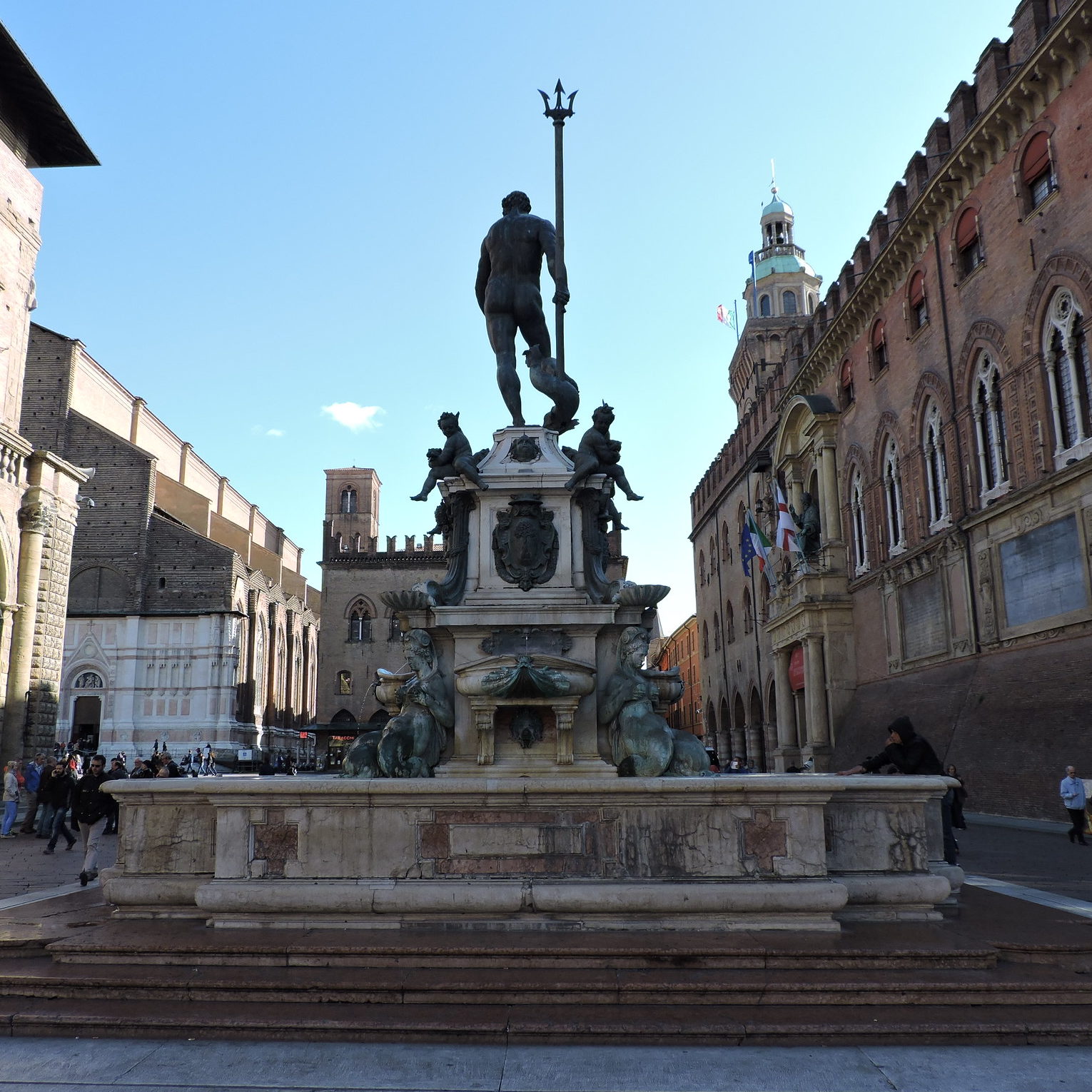
CC image by Dimitris Kamaras
Contributor Bio
Alexander Dawe and Burhan Sönmez
More Online by Alexander Dawe, Burhan Sönmez
Rome, Italy, 1966
by Burhan Sönmez
translated by Alexander Dawe
Wednesday, October 13, 1966
My dearest Miskal Hanım, I got up early today. I left my room on the second floor that overlooks the Piazza Navona and came to this cafe by the pool of the Fontana del Nettuno on the other side of the square. It is quiet here in the early hours of the morning. Now I am sitting at a table outside. While Fiammetta, who owns this cafe, brought me my customary coffee and croissant, I took out pen and paper and began writing these lines to you. Although she knows how fearful I am of war, she let me know that the Americans were bombing North Vietnam again. With a laugh, she added there was no need for me to be afraid, as Vietnam was still in the same place on the map, which meant very far away from us. I laughed with her and thanked her for putting me at ease. She asked me which post office I would use to send my letter today. I send every letter from a different post office, hoping one might bring me good luck and an answer from you. Today I plan to send this letter from the post office in Via Marmorata. I am always surprised to see people admiring such a strange building that seems to reject the history of Rome. What’s to love of a building with nothing but smooth walls and simple, unadorned windows? Even from a distance you feel its lack of spirit. Maybe the envelope that carries your name in a whisper will enliven the walls of a post office like this. Soon I will get up and walk for an hour along the river Tiber on my way to the building. As I watch the broad current of the river, I will think about how changing my name over the years, from İsa to Musa to others, and converting to new religions did nothing at all to help open a secret door in my life. The prophets were given the secrets of the universe, but I am only seeking my own. Why am I deprived of this? This is what I say to the river Tiber. When no one else is around. Looking at the water and losing myself in its endless current can take away my troubles. We are enjoying the last beautiful days of autumn. Soon a sharp north wind will drive away these cool breezes, leaving rain and then snow in its wake. The winters in Rome are harsh. How is your Istanbul, my dear Miskal? Have the cold winds started to blow? Has the color of the Bosphorus turned from blue to grey? Fiammetta has come to me with my second coffee and one for herself and sits down across from me. She tells me her mother’s health relapsed again yesterday. “If she comes down you should make a hasty retreat,” she says. Fiammetta lives with her mother Roza on the top floor of the cafe. No longer able to carry the weight of her years, Roza is often lost and forgetful, and she confuses people. After a turn for the worse last week, she took me for her husband, who died years ago, and she came over to give me a hug. An embrace full of such longing. She took my hand, put it on her head, and I stroked her grey hair. She looked as happy as a child. “Are you hungry? I’ll boil you some potatoes,” she said. “I’m not hungry,” I said. Now this made her sad and a bitterness seemed to drive away the happy expression on her face, and tears filled her eyes. We tend to think that no one can relive the past, but with these tricks of the mind the elderly do. Towards the end of their lives, they come to the edge of a future where they are overtaken by a past, indeed finding a way to bring it back. Breaking the glass of this clock we call the brain, they find themselves in a present between past and future. When Roza took me for her dead husband, it was not an expression of her malady, but rather a victory achieved in face of the cruel time. A victory of happiness. When Roza brought my fingers to her lips and kissed them, she was the master of her own time. The world before her eyes was different than the world before my eyes. While she was a stranger in mine, I was, in hers, her husband of the past. We were experiencing two distinct realities. Whose truth was more valid in that moment? I took a sip of coffee as I thought it over. Then I told Fiammetta I would stay when her mother came down. Let Roza come and see me. Let her think that I am her husband again. Let her embrace me, and I will embrace her. Taking her face in my hands, I will look into her eyes, caress her hair, and I will say, “I’m hungry Roza, would you boil me some potatoes?”
Excerpted from Stone and Shadow by Burhan Sönmez (translated by Alexander Dawe), forthcoming in 2022 from Other Press. Read an interview with Burhan Sönmez at HR Online.
Published on January 20, 2022
